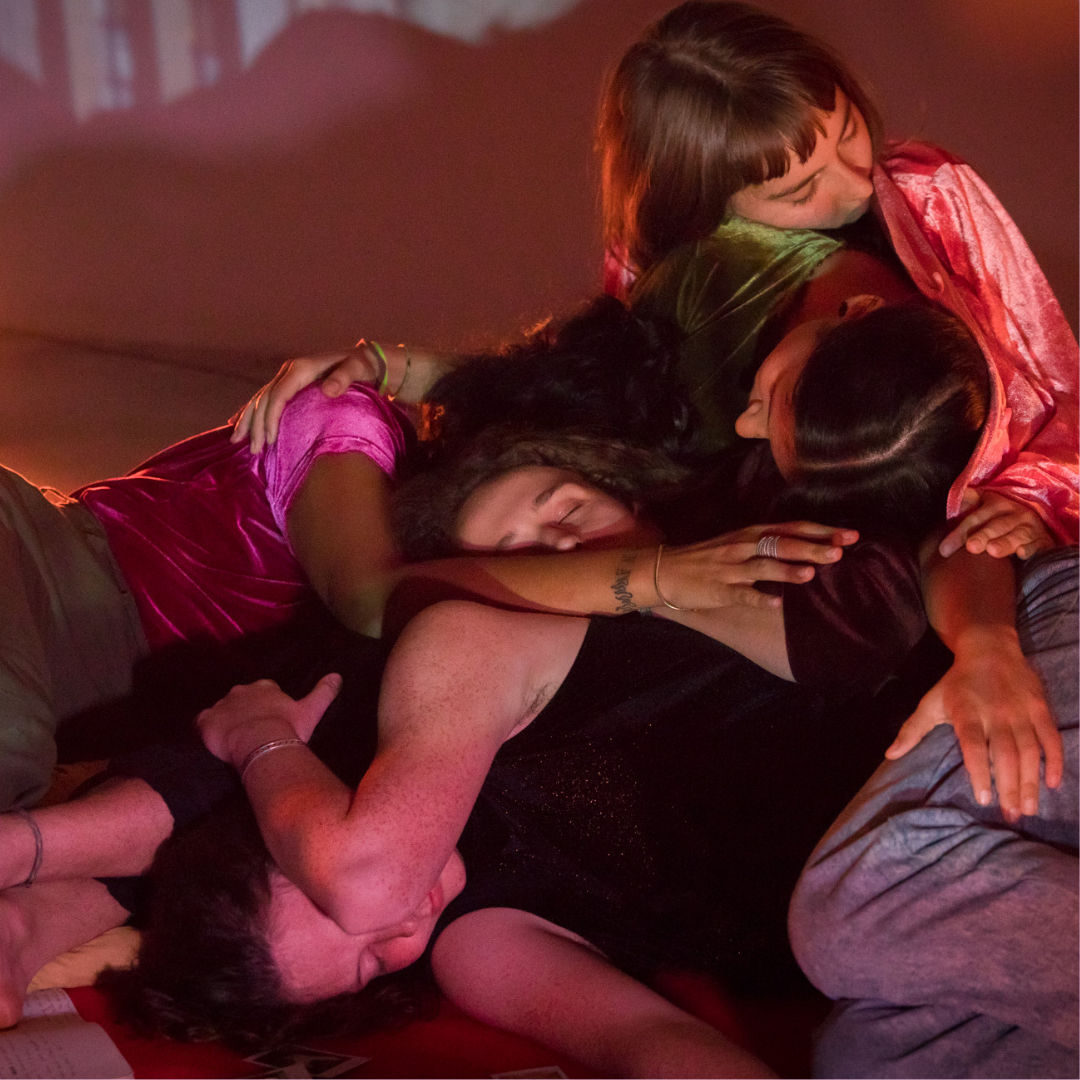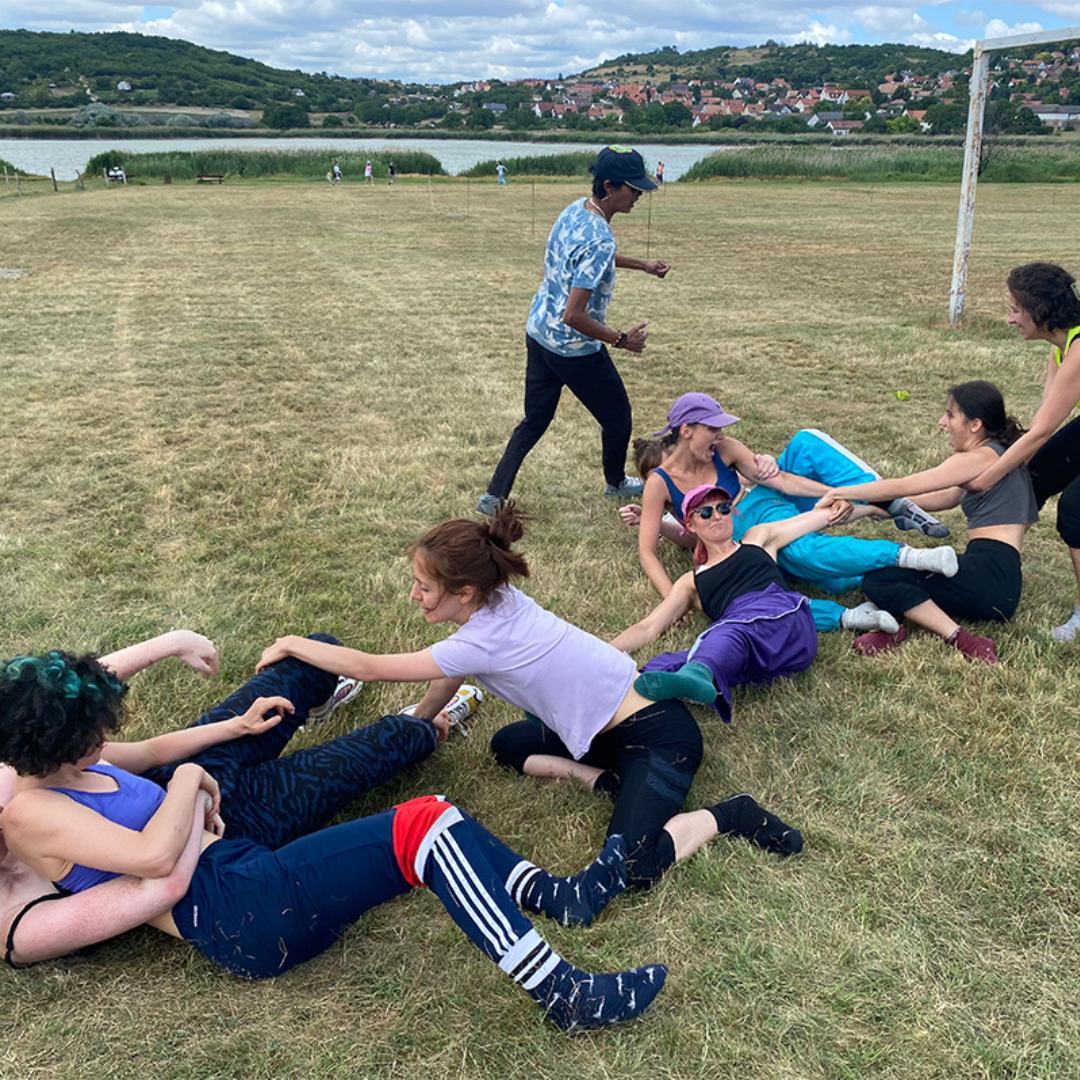|
Living, creating, thinking, and acting in community is increasingly popular today, especially in the artistic and activist worlds. However, adopting a critical approach and questioning "received ideas" and apparent truths invites us to delve deeper into this rhetoric. Does joining a community mean sacrificing individual will for collective will? Is it about hiding the “I” behind the “we”? What happens to personal voice and identity? Does it mean fading into the group, minimizing oneself in relation to others, dissolving into the collective, and always seeking compromises? Does this resonate with you? Exploring community and gender: What is the relationship between community and gender dynamics? How do traditional gender roles and biases play out in communal settings? Preventing societal dysfunction in communities: How can we ensure that the dysfunctions of contemporary society are not reproduced at the community level? This includes considering values, organizational structures, and ethical standards. Community as an escape: Is belonging to a community a way to escape individual decision-making, responsibility, solitude, and the challenges of adulthood? How do we balance communal support with personal growth? Communitarianism and emotional dependency: What is the relationship between communitarianism and emotional dependency? Does reliance on a community hinder emotional independence and personal development? Leadership and communitarianism: How does being in a community impact the emergence of leaders, particularly women leaders? Could communitarianism inadvertently suppress the development of a new iconography of female leadership? Reinventing individualism: Instead of solely focusing on communitarianism, shouldn't we also consider reinventing individualism outside the capitalist framework? How can we cultivate a form of individualism that promotes personal freedom and creativity while still valuing community? These questions urge us to critically examine the true essence and implications of living and creating within a community. By exploring these complexities, we can strive for a balance that honors both collective and individual needs. Let’s engage in this dialogue and uncover the deeper layers of what it means to be part of a community. What does community mean to you?
0 Comments
Nem vagyunk egymás ellenségei, konkurenciája, sőt! Együttműködés, közösség, szolidaritás. Egymás segítése, felkarolása, támogatása, bátorítása.
Ne add fel, ez egy kegyetlen világ és egy borzasztó nehéz szakma, de gyönyörű! Bízz magadban, a munkádban, ne add fel a kezdeti lelkesedésed, ne engedd, hogy mások irányítsanak, ne dőlj be, ne hagyd, hogy baromságokkal elkáprásztassanak, hogy elvegyék az önbizalmad, kövesd a saját utad, légy önmagad, ezt csak úgy lehet! Azzal foglalkozz, ami érdekel, azt kutasd, ami szerinted releváns! Figyeljünk egymásra, támogassuk egymást, bátorítsuk egymást, segítsük egymást! Fogjunk össze, tartsunk össze, legyünk közösség! |
Author"Born in Budapest (Hungary) in 1983, I graduated from the ENSAPC Art School (France) in 2016. As an artist, researcher, and community activist, I harness the power of art for connection, education, and activism. My practice spans various mediums, including image, object, and performance. I create full-length visual and dance performances, short-format pieces, and immersive experiences, while also creating spaces for non-formal education outside of traditional academic heritage. Over the past two decades, I've founded the School of Disobedience, established my own performance art company (Gray Box), and launched the annual Wildflowers Festival. I embrace everything unusual, unexpected, and nonconformist. I am not kind with assholes and have learned to forge my own path. I am here to guide you in thinking outside the box and achieving independence. To me, the real party is outside the confines of the established canon." Archives
July 2024
Categories
All
|


 RSS Feed
RSS Feed